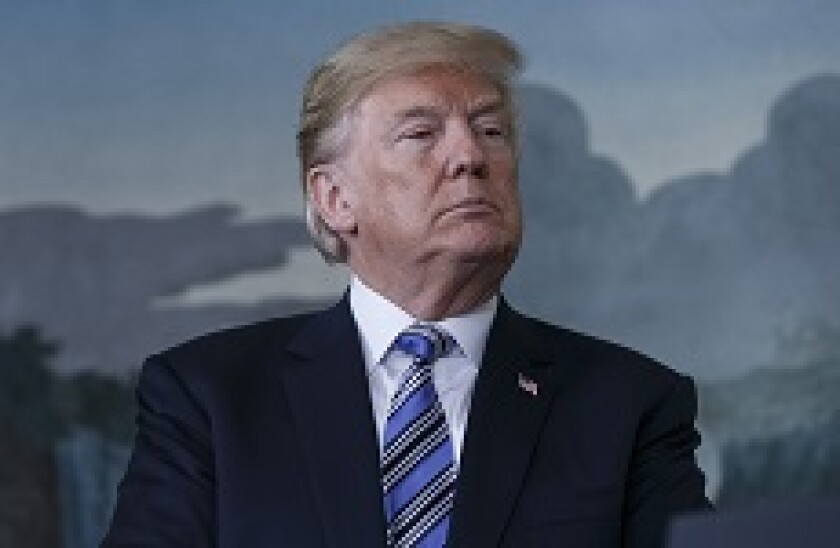Donald Trump has been abundantly verbose and inconsistent on Twitter in the past, but despite the noise, his administration's policies have been rather more stable and consistent.
But with some of the cooler heads in the White House now seeking alternative employment, markets can no longer afford to be so relaxed.
The president’s tone, which has always veered towards the protectionist, has now been backed up by action on tariffs and hostile language towards China.
This sent equity markets into flux last week and hurt the bookbuilding of a number of IPOs — in sectors with no direct connection to any of Trump's Twitter targets. Hedge funds, in particular, have been keeping their powder dry until markets calmed.
The talk of trade wars has abated for now and markets have reacted positively, with the largest one day inflows to the US stock market since 2015 seen on Monday.
This positive sentiment seems to have been driven by talk from Treasury secretary Steve Mnuchin, who said he was hopeful of a trade truce between the US and China.
But this is not an administration that speaks with one voice. Mnuchin’s personal desires for a positive trading relationship with China are not likely shared by many of the deficit hawks in the president’s inner circle, particularly Peter Navarro, the author of a book titled “Death by China” and the director of the White House National trade Council.
There is no guarantee that the softer tone will continue next week, or even enjoy personal approval from Trump, who has consistently promised to be tough on China, and any nation “taking advantage of America”.
If Trump decides to engage in more economic sabre rattling, markets are likely to take another knock.
That, in turn, hurts the IPO pipeline. March’s market turbulence came at a time when the IPO pipeline was remarkably full, with multiple new issues vying for attention.
Bankers on numerous deals said that volatility hurt momentum and meant that the most recent wave of IPOs was largely dependent on long-only money who came into books late and were disciplined on price, meaning sellers had to reassess how much they could raise in a flotation.
More deals and less buyer money is not an easy situation for sellers with many having to lower their valuation expectations in order to sell deals.
Some deals did not happen at all, and the IPO of Gategroup, the Swiss airline culinary firm owned by Chinese conglomerate HNA, was pulled. Buyers didn't want to buy at a price where the seller was happy to sell.
Seller reticence in coming to market with a heavily discounted listing is understandable and it is unfortunate for any IPO issuer.
IPOs often take multiple years of work and are historic events for companies, and having the process hurt at the final hurdle by a fortnight of rough markets is deeply unfortunate.
But given that Trump’s talk of trade wars could easily re-emerge at some point in the near future, and the post-Easter pipeline is slated to be extremely busy, IPO sellers may have to again lower their expectations, or risk their deals not happening at all.

